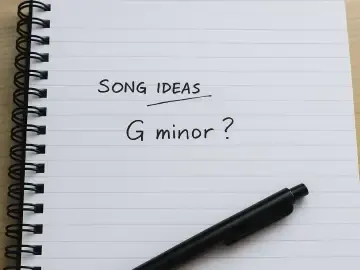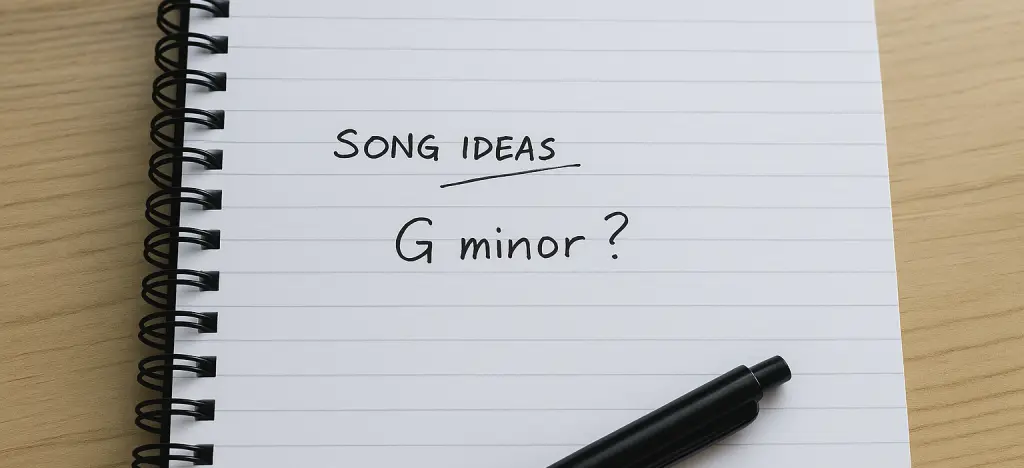Can a song really work with just one chord?
It might sound limiting — but some of the most hypnotic, emotional, and groove-driven songs in history stick to a single chord from start to finish. No progression. No modulation. Just rhythm, melody, texture… and a bold commitment to simplicity.
In this guide, we’ll show you some of the most iconic one-chord songs ever made — across pop, rock, funk, hip-hop, and more. You’ll also learn why these songs work, and how you can start writing your own — even if you’re a beginner on piano or guitar.
- What is a one-chord song?
- Pop songs that use just one chord
- Rock and psychedelic one-chord songs
- Funk and soul: all about the groove
- Blues: born to be minimal
- Indian classical music and the art of the drone
- Hip-hop and minimal loops
- So why do one-chord songs work?
- How to write a one-chord song
- Learn beginner-friendly songs
- FAQ: One-chord songs
What is a one-chord song?
A one-chord song is exactly what it sounds like: a track that stays on the same chord throughout. Instead of relying on harmonic changes, the energy comes from rhythm, arrangement, texture, and dynamics.
And they’re not just for beginners or bedroom demos. Some of the most well-known tracks in music history — by artists like Madonna, The Beatles, Aretha Franklin and Bob Dylan — use just one chord.
Pop songs that use just one chord
 Pop isn’t usually known for minimalism — but there are a few bold hits that do the job with just one chord, relying on rhythm, production, and vocals to keep things moving.
Pop isn’t usually known for minimalism — but there are a few bold hits that do the job with just one chord, relying on rhythm, production, and vocals to keep things moving.
"Coconut" – Harry Nilsson
A cult classic built entirely on C7. Proof that you can write a catchy, memorable hit without ever changing harmony."Get the Party Started" – P!nk
A relentless B minor vamp gives this early-2000s anthem its drive. The energy comes from arrangement, not chords."Music" – Madonna
This G minor groove just keeps going — and works precisely because it doesn’t try to do too much."Slow" – Kylie Minogue
Ultra-minimal and sexy, this track vamps on B♭ minor and proves how much space a single chord can offer in pop production.
 💡 Want to learn piano songs today?
💡 Want to learn piano songs today?
Meet Artie — the world’s first AI piano teacher that actually listens to your playing and gives real-time feedback to help you improve faster.
Download Artie for free now
Rock and psychedelic one-chord songs
 Rock music — especially the trippier, more experimental side — often leans into repetition and mood. And when it does, one chord is more than enough.
Rock music — especially the trippier, more experimental side — often leans into repetition and mood. And when it does, one chord is more than enough.
"Tomorrow Never Knows" – The Beatles
A single C major drone underpins the whole song. No progression, just a swirling mix of tape loops and backward guitars."Within You Without You" – The Beatles
Inspired by Indian classical music, this track floats over a C drone while the melody dances in the Mixolydian mode."Run Through the Jungle" – Creedence Clearwater Revival
This swampy riff never leaves D minor, but it doesn’t need to. The atmosphere builds from texture and rhythm."Loser" – Beck
Lo-fi and laid back, the whole thing rides a single groove that never really resolves — or changes.
💡 ARTMASTER TIP: One chord is just the start. See what happens when you add one more in our two-chord song guide — ideal for guitar or piano.
Funk and soul: all about the groove
 Funk doesn’t care about your chord progression. It cares about the pocket. The rhythm section holds things down while everything else rides the wave — often without leaving the first chord.
Funk doesn’t care about your chord progression. It cares about the pocket. The rhythm section holds things down while everything else rides the wave — often without leaving the first chord.
"Chain of Fools" – Aretha Franklin
After a quick intro, the whole track settles into a C minor 7 vamp and just... stays there. Glorious."Papa Was a Rollin’ Stone" – The Temptations
The 12-minute version never strays from B♭ minor 7. It builds intensity through layers, not changes."Who Knows" – Jimi Hendrix
This live jam keeps things rooted while Hendrix solos endlessly over a one-chord foundation.
💡 ARTMASTER TIP: The best funk songs don’t rely on chords — they rely on patterns. Learn how to spot them (and use them) in the secret to learning music.
Blues: born to be minimal
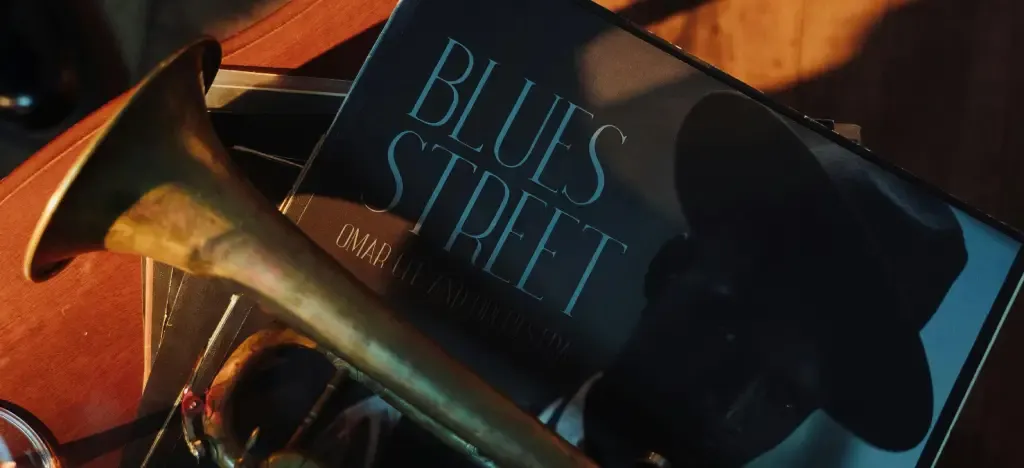 Before blues had guitars and chord charts, it was just a voice and a feeling. Even now, many blues tracks keep things simple — often sticking to one chord and letting the riffs do the work.
Before blues had guitars and chord charts, it was just a voice and a feeling. Even now, many blues tracks keep things simple — often sticking to one chord and letting the riffs do the work.
"Smokestack Lightning" – Howlin’ Wolf
A hypnotic E drone and a world-weary vocal. That’s it. That’s the song."Political World" – Bob Dylan
One long F minor vamp. Dylan doesn’t need changes — his words do all the shifting."Tin Angel" – Bob Dylan
B♭ minor from start to finish. Bleak, sparse, and theatrical."It’s All Good" – Bob Dylan
Another one-chorder, this time on G minor, delivered with a sneer and swagger.
💡 ARTMASTER TIP: Blues is about touch, phrasing, and playing like you mean it. Want to get closer to that sound? Check out how to sound like your guitar heroes.
Indian classical music and the art of the drone
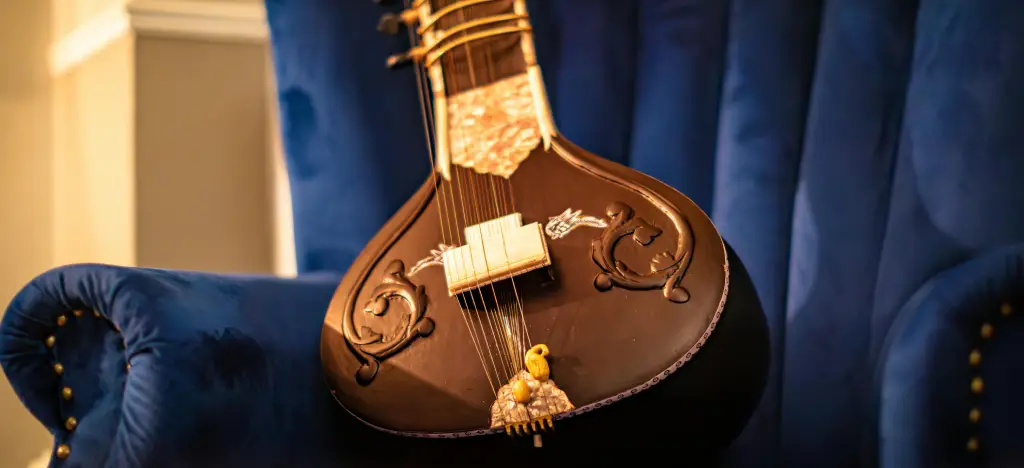 In Indian classical music, chord progressions aren’t really a thing. Instead, there’s usually a constant drone note (often played on a tambura), while melody and rhythm unfold above.
In Indian classical music, chord progressions aren’t really a thing. Instead, there’s usually a constant drone note (often played on a tambura), while melody and rhythm unfold above.
"Within You Without You" – The Beatles
George Harrison brought this concept to Western pop, building an entire track around a static C drone."Love You To" – The Beatles
Another raga-inspired piece, this one floats above a C♯ minor drone."Tomorrow Never Knows" – The Beatles
Although there's studio layering here, the harmonic centre remains fixed on C — reflecting the influence of Indian classical structure.
💡 ARTMASTER TIP: George Harrison didn’t just use Indian classical music for mood — he used it as a songwriting tool. Try some unexpected creative methods yourself.
Hip-hop and minimal loops
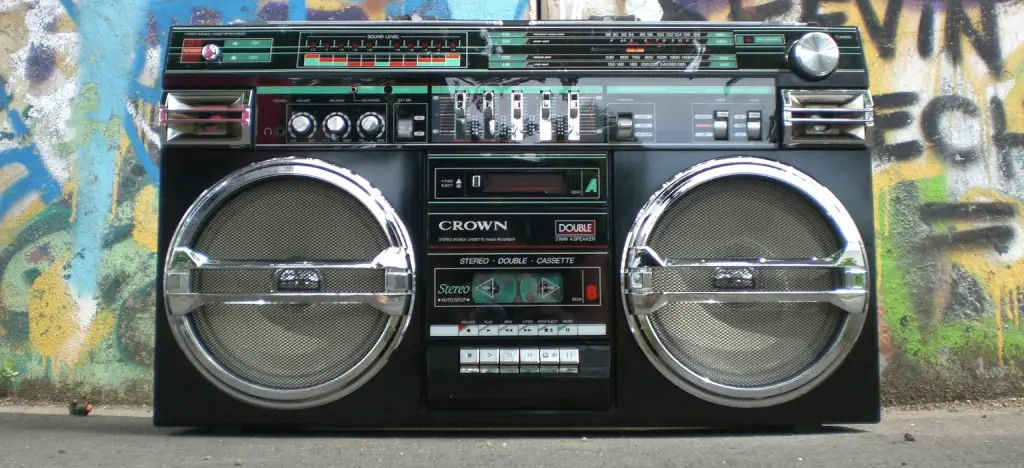 Hip-hop often relies on short loops — two or four bars that repeat underneath the vocals. Sometimes these loops include chords. Sometimes they don’t. In fact, some tracks barely have any harmony at all.
Hip-hop often relies on short loops — two or four bars that repeat underneath the vocals. Sometimes these loops include chords. Sometimes they don’t. In fact, some tracks barely have any harmony at all.
"Backseat Freestyle" – Kendrick Lamar
Built on a single loop that gives just enough harmonic colour without going anywhere."WAP" – Cardi B & Megan Thee Stallion
There’s no real chord here — just a three-note chromatic bassline. You could call it a zero-chord song.
💡 ARTMASTER TIP: If you’re into how hip-hop tracks are built — bar by bar, beat by beat — you might be ready to make your own. Here’s how to start producing music at home.
So why do one-chord songs work?
When harmony takes a back seat, the other musical elements come forward:
Melody becomes freer and more expressive
Rhythm and groove take the lead
Texture and dynamics create contrast
Lyrics often become the main focus
In short, one chord doesn’t mean one-dimensional. It means focused. It challenges the songwriter — and often leads to more inventive, daring music.
How to write a one-chord song
 Writing your own one-chord song might sound limiting — but it’s actually one of the easiest and most creative things you can do, especially if you play guitar or piano.
Writing your own one-chord song might sound limiting — but it’s actually one of the easiest and most creative things you can do, especially if you play guitar or piano.
🎸 On guitar?
Pick a chord you know well — something like A minor, G major, or E7. Strum it steadily, then start experimenting:
Change up your strumming pattern (down-down-up-up-down, etc.)
Add rhythm with muted strums or percussive taps
Sing or hum melodies over the top
Try different dynamics: soft in the verse, loud in the chorus
🎹 On piano?
Hold a simple chord in your left hand — say, C minor — and use your right hand to:
Improvise melodies using the matching scale (C, D, E♭, G, A)
Play different rhythmic patterns (stabs, pulses, slow build-ups)
Use the pedal to add atmosphere
Try repeating motifs or echoing rhythms between hands
With just one chord, you can build a groove, explore phrasing, and start writing melodies without worrying about theory or changes. You’re free to focus on the feel — and that’s what makes it so powerful.
Start simple, and let the music grow from there.
Learn beginner-friendly songs
If you're looking for easy songs to start playing on guitar or piano, our beginner courses and guides are a great place to begin:
🎸 20 acoustic guitar songs every beginner should learn – This list features classic and modern acoustic guitar songs that are perfect for beginners. You’ll get tips on chord transitions, strumming patterns, and even a free video tutorial to help you play along.
🎹 20 beginner-friendly songs to learn on piano – These 20 easy piano songs are great for beginners, with clear guidance on chord progressions, hand placement, and rhythm. Plus, there’s a step-by-step tutorial on Let It Be by The Beatles to help you get started.
FAQ: One-chord songs
Can you really write a song with just one chord?
Yep — and loads of artists have done it. One chord is enough if your groove, melody or vibe is strong.
Is one chord too simple for beginners to learn from?
Not at all. In fact, it’s the perfect way to focus on rhythm and feel without worrying about switching chords.
What are some examples of one-chord songs?
“Coconut” by Harry Nilsson, “Tomorrow Never Knows” by The Beatles, “Chain of Fools” by Aretha Franklin — all built on just one chord.
Why do one-chord songs still sound good?
Because they give space to everything else — vocals, rhythm, production. Less harmony = more room to get creative.
How do I start writing one?
Pick one chord you like, loop it, and start playing with rhythm or melody on top. Guitar or piano — it works on both.
What’s next after one-chord songs?
Try two-chord songs. Same simple vibe, just with a bit more movement. We’ve got a full guide for that too.
About the author
Matt Ford is a musician, teacher, writer, and lifelong student of sound.
With years of experience in both performing and teaching, he shares practical advice through ArtMaster to help musicians at every level build skill and confidence in their playing.
